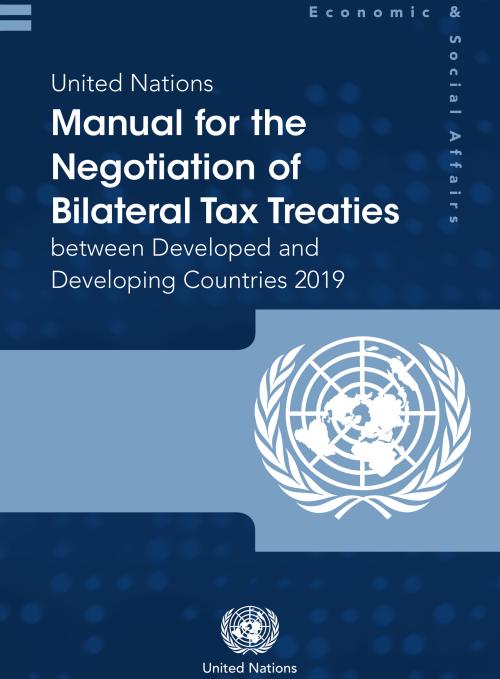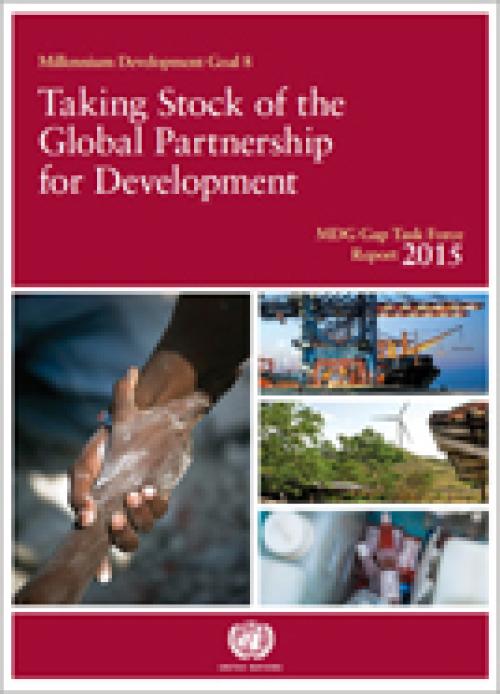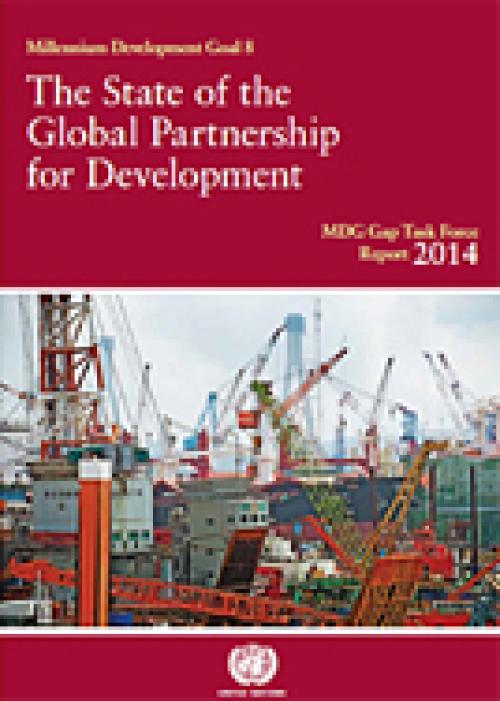Publications

The United Nations Manual for the Negotiation of Bilateral Tax Treaties between Developed and Developing Countries (2019) is a compact training tool for beginners with limited experience in tax treaty negotiation. It seeks to provide practical guidance to tax treaty negotiators in developing countries, in particular those who negotiate based on the United Nations Model Double Taxation Convention between Developed and Developing Countries. It deals with all the basic aspects of tax treaty negotiation and it is focused on the realities and stages of capacity development of developing countries.
While every country should form its own policy considerations and define…
The 2019 Financing for Sustainable Development Report (FSDR) of the Inter-agency Task Force on Financing for Development warns that mobilizing sufficient financing remains a major challenge in implementing the 2030 Agenda for Sustainable Development. Despite signs of progress, investments that are critical to achieving the Sustainable Development Goals (SDGs) remain underfunded and parts of the multilateral system are under strain.
The FSDR recommends that the international community should use this opportunity to reshape both national and international financial systems in line with sustainable development. If we fail to do so, we will fail to deliver the 2030…
The 2018 report of the Inter-agency Task Force on Financing for Development finds that most types of development financing flows increased in 2017, and that there has been progress across all the action areas of the Addis Ababa Action Agenda. This progress was underpinned by an upturn in the world economy, but at the same time the report warns that risks could derail development progress and structural impediments continue to undermine sustainable development prospects.
The 2018 report provides policy options which, if implemented, would put the world on a sustained and sustainable growth and development path. It also examines the financing challenges to the SDGs under…
Continued slow global economic growth is likely to leave about 6.5 per cent of the world population extremely poor in 2030 without national actions supported by international cooperation, according to a new report issued by the United Nations today.
A continuation of the status quo would severely hamper efforts to achieve the Sustainable Development Goals by 2030. The Goals call for eliminating poverty by 2030.
According to the 2017 “Financing for Development: Progress and Prospects” report, under current trends, least developed countries (LDCs) are likely to fall short by large margins.
Projections indicating that global gross product will grow at less than 3…
The first edition of the report of the Inter-agency Task Force on Financing for Development maps out the commitments and action items contained in the Addis Ababa Action Agenda and lays out how the Task Force will monitor their implementation in future years.
The Task Force has carefully gone through the full range of these commitments and action items to create a framework for monitoring. It compiled them into nine chapters — on cross-cutting issues, the seven action areas of the Addis Agenda, and on data. In each chapter, commitments and actions are organized by thematic clusters, for which the Task Force presents options for monitoring.

The Millennium Development Goals (MDGs) achieved significant progress over the past 15 years, but persistent gaps in official development assistance and an insufficient access to markets, affordable medicines and new technologies have highlighted the need for a rejuvenation of the global partnership for development, according to a new report launched today by United Nations Secretary-General Ban Ki-moon.
The “Taking Stock of the Global Partnership for Development” report of the United Nations MDG Gap Task Force monitors the recent achievements and challenges in the implementation of the Millennium Development Goal 8, while looking ahead towards the new…

Targets for the Millennium Development Goals related to the global partnership to improve people’s lives and end poverty show mixed results on providing the poorest developing countries with greater access to aid, trade, debt relief, essential medicines and technologies, according to a new report launched today by United Nations Secretary-General Ban Ki-moon.
The lives of millions of people worldwide have improved due to concerted efforts – at the global, regional, national and local levels – to achieve the eight Millennium Development Goals (MDGs). Recent statistics show that with many MDG targets already met – including reducing poverty, increasing access to clean drinking…
The United Nations has updated a set of guidelines to prevent double taxation between countries, as well as to avoid tax evasion, which costs countries $3.1 trillion every year.
The UN Model Double Taxation Convention between Developed and Developing Countries (the UN Model) is used by countries as a basis for negotiation of their bilateral tax treaties.
Double tax treaties are agreements to prevent taxing income twice by allocating taxing rights over this income between two countries. These types of treaties play a key role in encouraging investment and technology transfer, while allowing governments to retain taxing rights over the money that comes from those investments…
The present report recognizes that further progress has been made towards fulfilling the promises embodied in Millennium Development Goal 8 (MDG 8). At the same time, it identifies important setbacks, most of which have arisen from the current state of the world economy which is suffering its severest downturn since the Great Depression of the 1930s. Some donor countries are cutting their budgets for official development assistance (ODA); several developed and developing countries have resorted to protectionist measures; resurging debt distress is increasing the need for further and broader debt relief; the costs of essential medicines are on the rise; and the technological divide…
The MDG Gap Task Force has assessed the global commitments contained in the framework of the Millennium Development Goals (MDGs) ratified by Governments as the various international events that followed the Millennium Summit. The United Nations Millennium Declaration emphasized that strengthened global partnerships for development were needed to provide the enabling environment for accelerating progress in reducing poverty, improving health and education, establishing gender equality and ensuring the protection of the environment as defined in the MDGs.
The main message of the present report is that while there has been progress on several counts, important gaps remain in…
 Welcome to the United Nations
Welcome to the United Nations